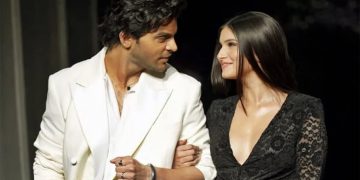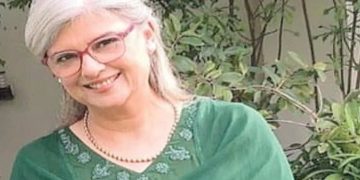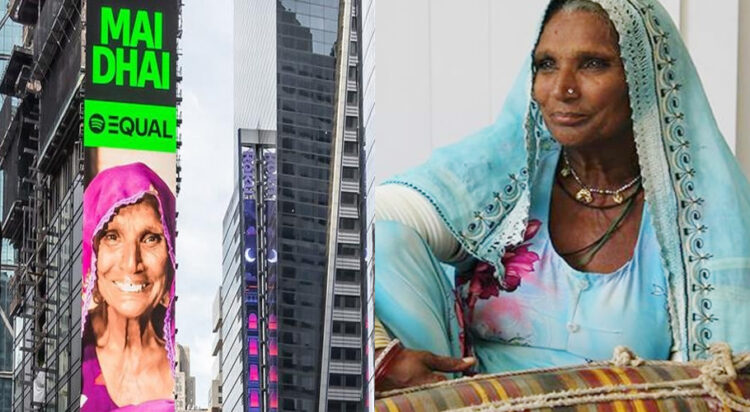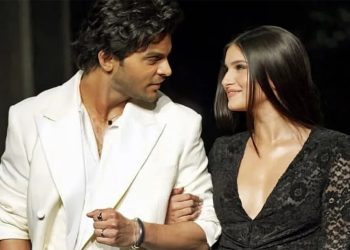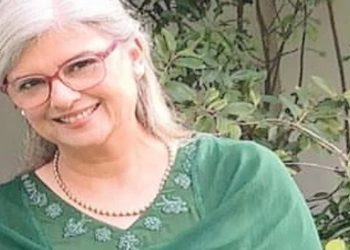Pakistani classical singer Mai Dhai recently graced the iconic Times Square billboard in New York City, becoming the latest celebrity from Pakistan to be featured at this prestigious location.
Times Square, situated at the heart of New York City, is renowned for its iconic digital billboards and advertisements, which showcase images of celebrities and a wide array of prominent brands. It is recognized as one of the most heavily trafficked places in the world.
“A voice like that of the cuckoo reaches Times Square directly,” Spotify Pakistan posted on Instagram, sharing a picture of Dhai on a vertical billboard in Times Square. “Listen to Mai Dhai on the #EQUALPAKISTAN playlist.”

The Equal Pakistan initiative by Spotify aims to promote both established and aspiring female artists, recognizing their talent and contributions to the country’s music industry.
Who is Mai Dhai?
Born in the Barmer district of Rajasthan, India, Mai Dhai is a prominent figure in the musical legacy of her mother, Khand Bai, a renowned folksinger of the Indian desert. Dhai now resides in the southern Tharparkar district, known for its desert landscape and cultural diversity. She belongs to the Manganhar Muslim community, a famous group of singers from Tharparkar in Pakistan and Rajasthan in India, regions connected by a shared border.
Dhai garnered critical acclaim after performing at various popular Pakistani musical festivals. She shot to national fame in 2016 after debuting in Coke Studio’s Season 8 with her songs “Aankhaṛli Phaṛookai” and “Kadi Ao Ni,” alongside artists Karam Abbas Khan and Atif Aslam.

Mai Dhai has immortalized the songs of Thar’s patriotic heroine Marvi, who sang while imprisoned by King Umer Soomro in a historical fort. Though Marwari, the language spoken in Thar and Rajasthan, is not widely understood by Pakistanis, Dhai’s English-speaking American audience recognized it as the language of love. They compared her melody and the rhythm of her dhol to American greats like Tina Turner and Betty Lavette, as noted by New York-based journalist Hassan Mujtaba in Daily Dawn.


